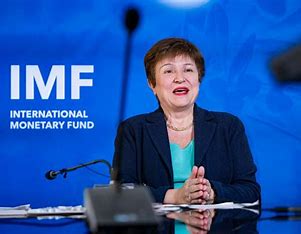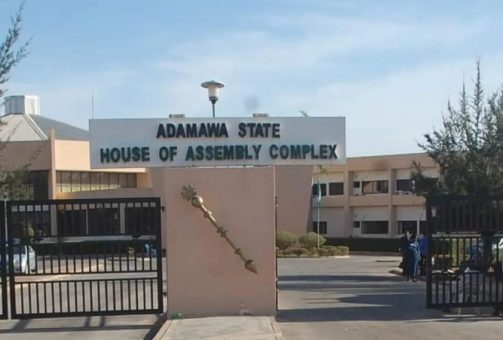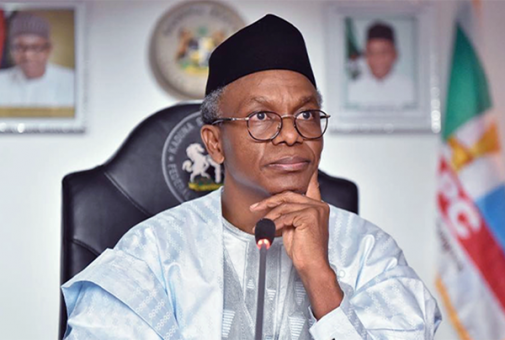
The International Monetary Fund (IMF) has released its latest World Economic Outlook (WEO), revealing a downgrade in Nigeria’s growth prospects for 2024, now projected at 2.9%, down from the 3.3% reported in July. This adjustment is attributed primarily to the adverse impacts of soaring inflation, recent flooding, and significant setbacks in oil production.
In its report, the IMF also maintained its forecast for global economic growth in 2025 at 3.2%, which reflects a slight decline of 0.1% from earlier estimates. The managing director of the IMF, Kristalina Georgieva, shared insights during a speech on October 17, 2024, ahead of the annual meetings of the IMF and the World Bank Group in Washington, D.C.
For Nigeria specifically, the IMF’s projections suggest that while growth will stagnate at 2.9% for 2024, there is an anticipated slight recovery for 2025, with GDP growth expected to rise by 0.2% compared to previous forecasts. However, inflation is projected to remain a significant concern, with estimates suggesting a stabilization at 25% for 2025 and a reduction to 14% by 2029.
Throughout the first and second quarters of 2024, Nigeria’s economy showed some resilience, recording growth rates of 2.98% and 3.19%, respectively. This performance was achieved despite the backdrop of escalating inflation and a continued depreciation of the naira. Notably, the GDP growth figures for these quarters surpassed those recorded in 2023, illustrating a degree of economic resilience amid severe macroeconomic challenges, including a spike in petrol prices and an inflation rate that reached a staggering 28-year high.
The report indicates that inflation in Nigeria began to decline in July 2024, marking a shift after 19 consecutive months of increases that started in January 2023. Unfortunately, this respite was short-lived; following a two-month hiatus, inflation resumed its upward trajectory, largely due to a rise in petrol prices introduced by the Nigerian National Petroleum Company Limited (NNPCL) in September.
Jean-Marc Natal, the division chief in the IMF’s Research Department, emphasized that the downward revision of Nigeria’s growth outlook can be traced back to two significant factors: severe flooding that disrupted agricultural output and ongoing security issues that have hampered oil production. Natal highlighted the uneven nature of growth across the region, pointing out that while some countries have begun to stabilize their inflation rates, others continue to grapple with double-digit inflation.
The IMF’s assessment is echoed by the World Bank, which noted that Nigeria’s inflation rate has escalated for 13 consecutive months. This surge can be linked to several factors, notably the removal of fuel subsidies that has resulted in increased transportation and production costs, as well as the depreciation of the naira against major currencies.
An analysis of the National Bureau of Statistics’ monthly inflation report reveals a troubling trend. The inflation rate rose from an average of 22.41% in May to 22.79% in June, further climbing to 24.08% in July. By August, inflation reached 25.80%, then 26.72% in September, and continued to escalate to 27.33% in October, 28.20% in November, and 28.92% in December. As of late 2023, inflation had surged primarily due to increased prices for food, energy, and other essential goods.
The situation continued to deteriorate into 2024, with inflation climbing to 29.90% in January, driven predominantly by the rising cost of food items. This upward trend persisted, with rates reaching 31.70% in February, 33.20% in March, and peaking at 34.19% in June before showing slight declines to 33.40% in July, 32.15% in August, and 32.70% in September.
Moreover, Nigeria is contending with challenges in its oil production sector, exacerbated by issues such as pipeline vandalism and crude oil theft, which have significantly hindered output levels. As a result, the country faces a multifaceted economic crisis that demands urgent attention and effective policy responses.
Despite these hurdles, Assistant Director Jason Wu from the IMF’s Monetary and Capital Markets Departments remarked that Nigeria’s economy is on a path to stabilization, thanks to the government’s reform initiatives. However, the current economic landscape underscores the need for sustained efforts to address inflation, bolster oil production, and mitigate the impact of flooding on agriculture.
As Nigeria navigates these complex challenges, the outlook remains uncertain, with policymakers urged to implement measures that foster economic resilience and promote sustainable growth in the face of ongoing global economic volatility.





